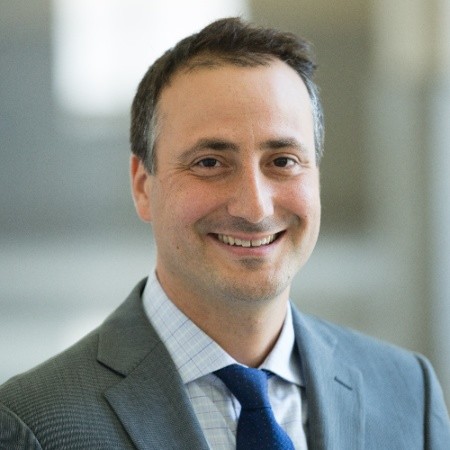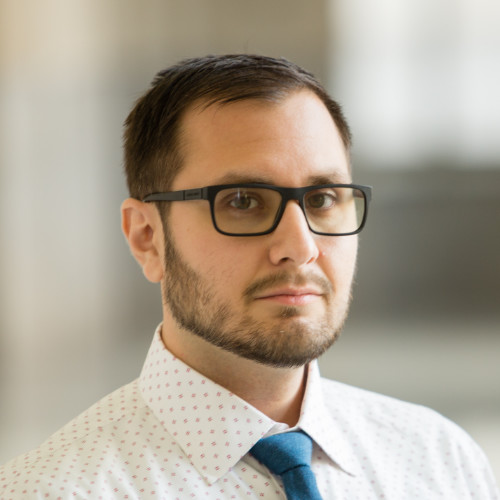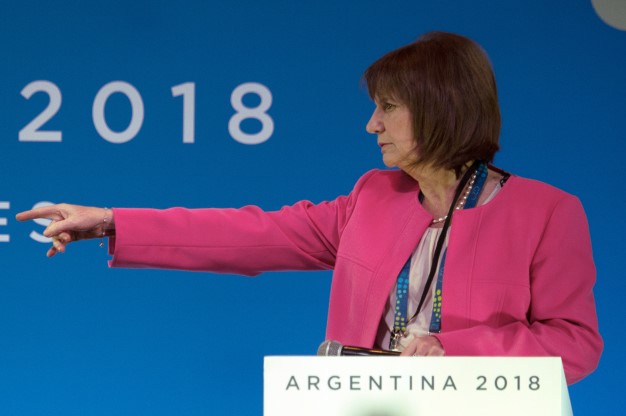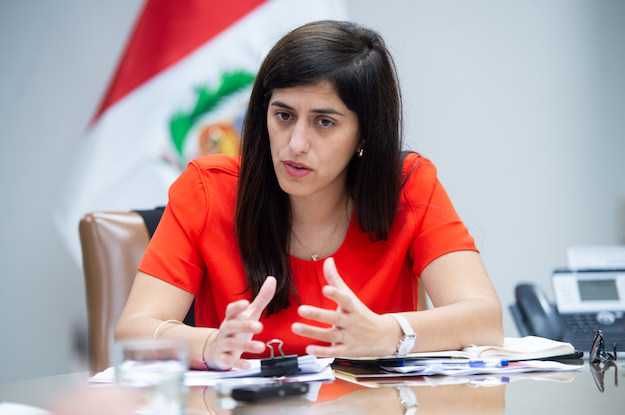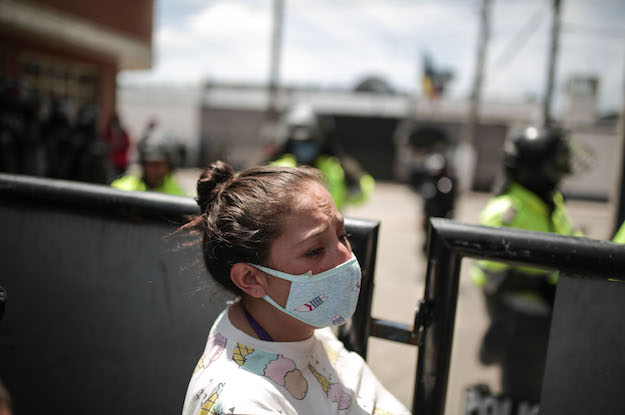Read more about Argentina’s upcoming elections
To outside observers, Argentina’s hardline security minister, Patricia Bullrich, is a lightning rod. Over the past three years she has tangled repeatedly with human rights groups, infuriating not only local activists aligned with the country’s former leftist president, but also international heavyweights such as Amnesty International.
But at home Bullrich’s influence is growing. Though President Mauricio Macri sees himself as the region’s liberal stalwart, she has arguably become his most powerful minister. This is especially true following her smooth handling of the G-20 summit in Buenos Aires late last year. Given Argentina’s protest culture, expectations for the summit were low: “Everybody expected it to be a fiasco,” Christine Lagarde, the International Monetary Fund’s managing director, said. By the end, Lagarde was hailing the gathering as “one of the best” ever held.
Bullrich is now the third-most influential member of the cabinet – up from eighth in 2017, according to a Poliarquía survey of Argentine elites. There are rumors that Macri will select her as his vice presidential running mate for this year’s election.
This year’s election already pushed Macri to emphasize his security agenda, as he did effectively in 2015. Despite howls of protest from rights groups, Bullrich’s approach remains a political asset for Argentina’s government. According to a recent Synopsis poll, 56 percent of Argentines approve of the government’s handling of crime, the highest for any issue.
This is particularly important to the governing party because Argentina’s economic stumbles have left the president eager to change the subject. Not surprisingly, with Argentina mired in recession, voters are unimpressed with Macri’s economic management. The president’s advisers have determined that security is the strongest alternative issue for his re-election campaign.
Emboldened by her rising political capital, Bullrich has accelerated her tough-on-crime agenda.
Two days after the G-20, she eased restrictions on the use of deadly force by police. “Until today, the security services could not use their weapons to defend themselves, or to defend people from armed criminals,” she said. “They had to wait to be shot at to respond.”
The reform provoked outrage among human rights activists, who objected to clauses that allow police to use firearms if a suspect is fleeing, or without prior warning in vaguely defined circumstances, such as when the risk to life is high or a warning would be “inadequate or useless.”
Human Rights Watch warned that the new rules could “allow security officers to employ firearms in an unacceptably broad set of circumstances.” The Centro de Estudios Legales y Sociales, an Argentine human rights group, said it would make it harder for judges to hold police accountable for misconduct. Though this issue is sensitive everywhere – including in the United States – critics said easing restrictions was particularly problematic in Argentina, where security personnel are often poorly trained.
Even a senior member of Macri’s coalition, lawmaker Elisa Carrió, objected to the change. The new policy “violates human rights,” she said. “We’re not going to head toward fascism.” The Buenos Aires governor, María Eugenia Vidal, who is also a Cambiemos member, said the province would not adhere to the rule changes and her human rights secretary Santiago Cantón denounced the resolution as a “risk for everyone.”
Though controversial with rights groups at home and abroad, the policy shift is consistent with Bullrich’s mano dura approach. In 2018, she championed a police officer who shot and killed a fleeing mugger, visiting his home to reassure him that “he is not alone.” She also defended policies critics say infringe on the rights of demonstrators.
Bullrich’s hardline approach seems oddly timed. Under Macri, Argentina has made strides in combating crime. Cocaine seizures are way up, and homicides declined 21 percent between 2015 and 2017, from 6.6 murders per 100,000 individuals to 5.2. The number of robberies fell 6 percent in the same period. Argentina is now one of the safest countries in Latin America.
Despite this progress however, crime remains a top concern and perceptions of crime do not yet reflect the progress of recent years, with 88 percent of Argentines saying they fear being victim of a crime, according to Latinobarómetro.
Given the public concern about violent crime in Argentina – and Bullrich’s increased influence – there are several reasons to believe the country’s security policies will continue to harden.
These policies are particularly appealing to Macri’s conservative base: 84 percent of Cambiemos voters approve of the new police rules of engagement. But the rule change also appeals to independents and opposition Peronists; overall, 60 percent of Argentines favor the new policy, according to consulting firm Poliarquía. Only followers of former President Cristina Fernández de Kirchner largely disapprove.
Moreover, Macri is under pressure, both internally and externally, to adopt a stronger security posture. Brazil’s newly elected leader Jair Bolsonaro, who has promised a crackdown on crime, is amplifying similar voices throughout the region, including in Argentina. At home, the far-right presidential candidate Alfredo Olmedo, a Bolsonaro admirer, is pushing an even harder line. Even mainstream Peronists such as presidential candidates Sergio Massa and Miguel Pichetto have for years advocated a stronger approach to law enforcement than under Presidents Néstor Kirchner and Fernández de Kirchner, who together ruled from 2003 to 2015. “We have to regain trust in the police, and give them authority,” Pichetto said.
The Bolsonaro effect is visible even in typically peaceful Uruguay, where a major outsider candidate in this year’s election is running on a mano dura platform.
In this context, Bullrich helps Macri satisfy public demands for heavy-handed policing, and acts as a hedge against challenges that could complicate his chances in the first round of the presidential election. Should his base split, Fernández de Kirchner and a moderate Peronist could keep Macri from advancing.
Fernández de Kirchner strongly opposes Bullrich. But her security policies were widely regarded as unfair to police, and counterproductive. She is also fighting against a regional tide. As the election draws closer in Argentina, it seems likely we will be seeing more of Bullrich.
—
Gedan, a former South America director on the National Security Council, is the senior adviser to the Latin American Program at the Woodrow Wilson International Center for Scholars and an adjunct lecturer at Johns Hopkins University. Saldías is a Wilson Center researcher.

